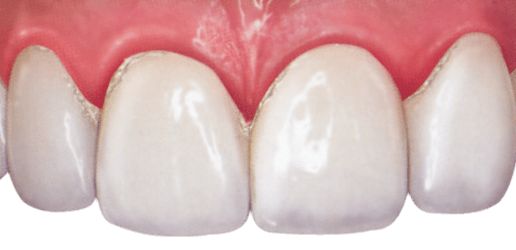Fluoride
Fluoride, a substance that's found naturally in water, plays an important role in healthy tooth development and cavity prevention.
Fluoride combats tooth decay in two ways:
- It strengthens tooth enamel, a hard and shiny substance that protects the teeth, so that it can better resist the acid formed by plaque.
- Fluoride allows teeth damaged by acid to repair, or re-mineralize, themselves.
Fluoride cannot repair cavities, but it can reverse low levels of tooth decay and thus prevent new cavities from forming.
The American Academy of Pediatrics recommends that these fluoride supplements be given daily to children between the ages of 6 months and 16 years. The dosage will change as your child grows. Only children living in non-fluoridated areas or children who drink only non-fluoridated bottled water should receive supplements.
Most children get the right amount of fluoride through a combination of fluoridated toothpaste and fluoridated water or supplements. Too much fluoride before 8 years of age can cause enamel fluorosis, a discoloration or mottling of the permanent teeth. This condition is unsightly but harmless and often can be treated with cosmetic procedures.

Plaque
Plaque is essentially the start of gum disease problems. Plaque is a build-up from bacteria in the mouth and particles from the foods you eat every day.
Once sugars are introduced to plaque, it turns into a tooth eating acid that sits just above the gum line. If regular oral care isn't standard, the acid will start eating at the teeth producing cavities and the plaque can cause gum disease.
Plaque that is allowed to sit for a prolonged period of time can cause cavities, gingivitis, and other problems in your mouth. If it's left longer than that, serious dental procedures may be required to restore your decaying smile.

Applying Dental Sealants
Sealants are one of the easiest preventive dental procedures that can be done. Sealing your teeth can be done in a single dental visit and is entirely painless!
We will first thoroughly clean and dry teeth that are going to be sealed. Generally, gauze and/or cotton will be placed around the tooth to prevent moisture collecting on the tooth. A clean and dry tooth is essential for the sealant material to properly adhere.
Next, a mild acid is applied to the chewing surface of the tooth. This will roughen the surface layer of the tooth's enamel and will provide an optimal surface for the sealant material to bond to.
The tooth will be rinsed with water and dried a final time before the sealant is placed.
Dental sealant material is a plastic-like material that is brushed onto the tooth's chewing services. This liquid-like material will sink into the nooks and crannies within the chewing surface and start bonding directly to the enamel layer of the tooth. We will use a special blue curing light that hardens the sealant.
That's it! Your tooth is now sealed off from harmful plaque and bacteria.
What is Tooth Scaling?
Tartar is plaque that has had time to harden and is that white (sometimes yellow) substance found at the base of the tooth just above the gumline. Tartar is usually not removed with standard brushing and flossing and usually requires coming in to see us for proper and thorough removal.
Tooth scaling is a service that involves using a tool that is specifically designed to break-apart and remove tartar. We gently run the tooth scaling tool along the front and back surfaces of teeth that have any signs of tartar which effectively cleans the gumline and smooths the tooth enamel. Every time you come in for a dental checkup, tooth scaling is performed to help prevent future dental problems such as cavities and gum disease.
What's Involved With A Root Planing Procedure?
Each person's oral health is unique and the stage and current condition of the teeth and gums will dictate how involved a deep cleaning is as well as how long it takes to heal. Usually a deep cleaning is done one-half of the mouth at a time and healing takes about a day or two.
During a deep cleaning we will numb the areas of your gums where we are working, which will keep you from feeling any discomfort during the procedure. Using a special tool, we will remove any tartar build up that is found on tooth roots below the gumline and we ensure the tooth root gets a smooth finish to allow the gum tissues to start re-attaching itself. Our office uses a special ultrasonic tool that will ensure the quickest and most comfortable deep cleaning as possible and is something some other dental offices do not offer. After your root planing procedure, you may be recommended to take a medication to help control soreness from the procedure, keep away infections and to promote healing.